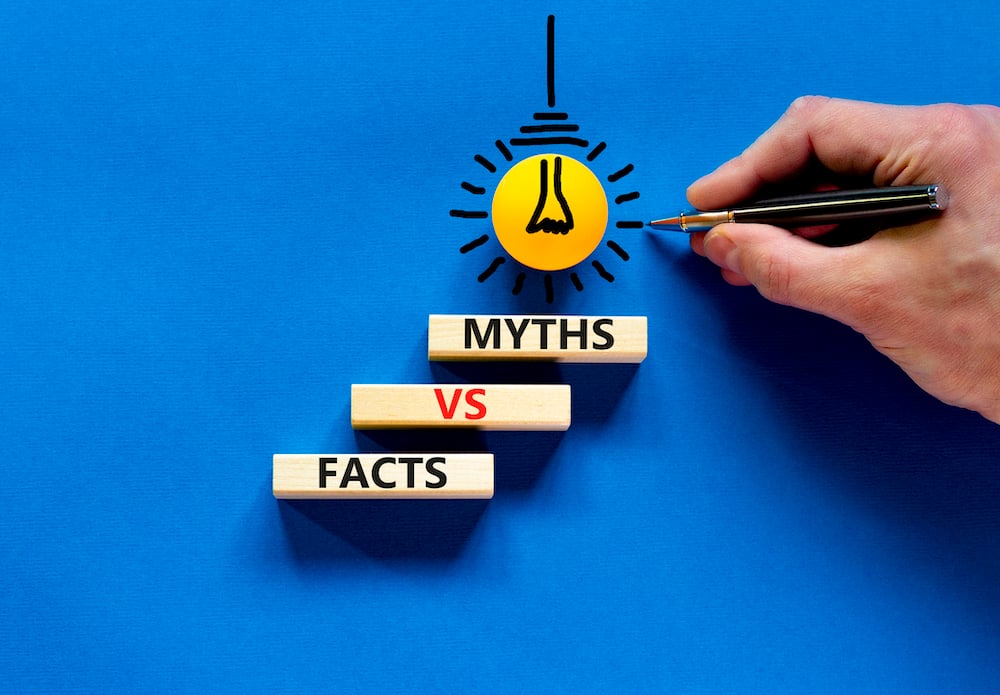
Cancer is a prevalent condition that affects many individuals, but unfortunately, the spread of misinformation has been amplified in recent years due to the emergence of social media influencers and platforms like TikTok. While these platforms have the potential to share valuable information, they have also become breeding grounds for myths and misconceptions about cancer prevention and treatments. In this blog post, we aim to debunk common cancer myths, separating fact from fiction and providing you with accurate information backed by scientific evidence. Our goal is to help you gain a better understanding of cancer and make informed decisions regarding your health.
Myth 1: Sugar and artificial sweeteners cause cancer
Contrary to popular belief, there is no scientific evidence linking sugar consumption or artificial sweeteners to cancer. While a high-sugar diet may contribute to weight gain, which is associated with an increased risk of certain cancers, the direct causation between sugar and cancer has not been established. It's always advisable to speak with your physician if you have concerns about your diet.
Myth 2: Smartphones and Wi-Fi cause cancer
There is no conclusive evidence to suggest that the use of smartphones, Wi-Fi, or other similar devices increases the risk of cancer. The radio waves emitted by these devices are of low energy and do not possess enough power to cause DNA damage or gene mutations leading to cancer.
Myth 3: Power lines cause cancer
Research has not found significant evidence linking residential magnetic fields generated by power lines to cancer. The extremely low frequency electromagnetic fields they produce are non-ionizing radiation and do not damage genes.
Myth 4: Cancer is contagious
Cancer is not contagious and does not spread easily from person to person like a common cold. While there is a minimal risk of transplant-related cancer transmission through tissue or organ transplants, medical professionals take precautions to prevent using organs or tissues from individuals diagnosed with cancer.
Myth 5: Superfoods can prevent cancer
While certain foods like acai, blueberries, and green tea offer health benefits as part of a balanced diet, there is no scientific basis to label them as "superfoods" or claim that they can prevent cancer. Incorporating fruits and vegetables into your diet is beneficial for overall health, even though they do not possess miraculous cancer-preventing properties.
Myth 6: Stress causes cancer
There is no direct evidence linking stress as a direct cause of cancer. However, chronic stress can negatively impact overall health, and unhealthy coping mechanisms may exacerbate its effects. It's important to find healthy ways to manage stress even before a cancer treatment journey, but especially if you or a loved one is going through cancer treatment currently.
Myth 7: Underwire bras increase breast cancer risk
There is no scientific evidence supporting the claim that wearing underwire bras increases the likelihood of developing breast cancer. The theory suggesting that underwire design may block lymphatic flow lacks scientific support.
Myth 8: Surgeries and biopsies spread cancer
The risk of cancer spreading through surgical procedures or needle biopsies is extremely low. Surgeons take precautions to prevent the spread of cancer cells during surgery, such as using sterilized tools and techniques. Needle biopsies, commonly used for cancer diagnosis, do not cause cancer to spread.
Myth 9: If someone in my family has cancer, I'll get it too
Only a small percentage of cancers (five to ten percent) are hereditary, typically resulting from specific genetic mutations. The majority of cancers develop due to lifestyle choices, environmental factors, or aging. Genetic testing can provide more information about inherited cancer susceptibility syndromes.
Myth 10: If no one in my family has cancer, I won't get it either
Cancer can affect anyone, irrespective of their family history. Approximately 39.5% of men and women in the United States will be diagnosed with cancer during their lifetimes. By adopting healthy habits and following screening guidelines, you can reduce your risk of developing cancer and detect it early when treatment is most effective.
By dispelling common cancer myths and misconceptions, we can separate fact from fiction and empower ourselves with accurate knowledge. Understanding the truth about cancer helps us make informed decisions about our health, reduce risk factors, and prioritize regular screenings. Stay up to date with reliable information, consult your healthcare provider, and take proactive steps to promote your well-being and cancer prevention.
It’s important to banish myths and keep up to date with cancer facts. Speak to your doctor about screening guidelines and steps you can take to reduce your risk for cancer.
